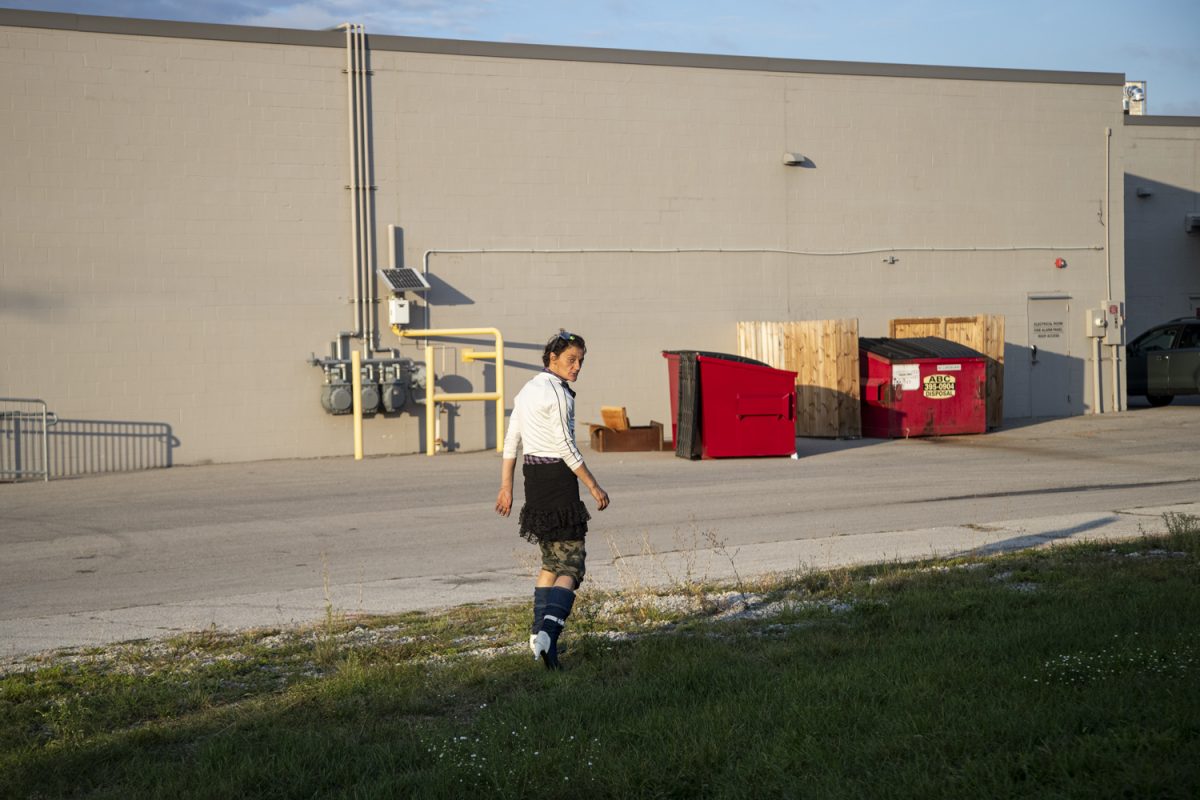Advocates for Iowans experiencing homelessness say recent and proposed state policies that would reduce resources available for unhoused people threaten the growing population.
Amid an increase in people experiencing homelessness in Iowa, Gov. Kim Reynolds’ plan would eliminate state boards and commissions, including the Iowa Council on Homelessness. While Reynolds claims the cuts will make state government more efficient and effective, critics question if the decision will reduce resources for the unhoused.
After previous legislation barred cities’ restrictions on source-of-income discrimination — allowing landlords to reject tenants using vouchers — some critics worry the reorganization plan would decrease support for an already vulnerable population.
Reynolds’ plan to reduce the size of government will eliminate 111 of Iowa’s 256 boards for a 43 percent decrease. The majority of the boards and commissions will be absorbed by other boards or have their powers delegated to state agencies. But 39 will be entirely eliminated, including the homelessness council.
Depending on the pace of the legislation, David Hagen, a member of the Iowa Council on Homelessness, said the council recognizes it may dissolve in July because of the elimination of the board by the legislature.
State and national data show a current increase in people experiencing homelessness.
The annual Point in Time report conducted by the U.S. Department of Housing & Urban Development revealed 2,653 unhoused individuals on a single given night in 2023 in Iowa, which is the highest number recorded in the report since 2018.
HUD’s Annual Homeless Assessment Report showed a 12 percent increase in homelessness nationally in 2023 — the highest number of people reported as experiencing homelessness on a single night since reporting began in 2007.
Data for the 2024 Point in Time report began its collection process on Jan. 25. Results will be made available later in the year.
Hagen said in an email to The Daily Iowan that in the months leading up to the state legislators’ decision, members of the council will explore contingency plans to continue statewide advocacy of homeless concerns.
He described Johnson County’s Shelter House as a “star.” Located in Iowa City on 429 Southgate Ave., Shelter House provides eviction prevention, emergency shelter, and rehousing services for people facing homelessness.
Christine Hayes, director of development for Shelter House, said legislation such as the removal of protections for those using housing vouchers and the upcoming elimination of the Iowa Council on Homelessness would hurt Iowa City.
Hayes said the elimination of the council would result in a significant loss of advocacy and education. She said the community would lose the voice of the people who work directly in the system that helps unhoused individuals and the ability to inform policy discussions.
“Even if on the most basic level, it was simply the fact of ignorance, that ignorance is its own form of harm,” Hayes said. “If people don’t know what’s happening, they can’t work to fix it.”
The emergency shelter that Shelter House operates has 70 beds for occupants and allows an extra 30 people during the winter months. Hayes said the winter shelter was full for the first time on its opening night in the first week of December and has been full ever since.
Sam Brooks, street outreach and engagement specialist at Shelter House, works odd hours to seek out individuals who may need the shelter’s services. Brooks said almost all of the people at the largest homeless camp in Iowa City rely on housing services, including federal housing vouchers.
Reynolds signed a law in 2021 barring cities from adopting ordinances that prevented landlords from denying housing to individuals and families using housing vouchers. Hayes said the legislation prioritizes an ability to make a profit over an individual’s ability to live life with their basic needs met.
The law voided Iowa City’s existing ordinances on Jan. 1, 2023. Hayes said the law has unequivocally impacted the people of Iowa City and caused an increase in the shelter’s population.
Hayes described the legislation as “decidedly wrongheaded” as a voucher is a guaranteed source of income.
“It is hard to see this as anything but discriminatory legislation when every individual with a voucher in hand is guaranteed to be able to pay their rent,” Hayes said. “There’s no way to make sense of it other than the fact that it is permitting income-based discrimination.”
Brooks said homelessness is an issue that the entire community is responsible for and should be held accountable for.
“This is not an individual problem. This isn’t a problem based on anything that has to do with this person, beyond these larger institutional barriers, and to accept that guilt, essentially, is really hard,” Brooks said. “It’s not comfortable to feel like you’ve let your neighbor stay in the cold.”



